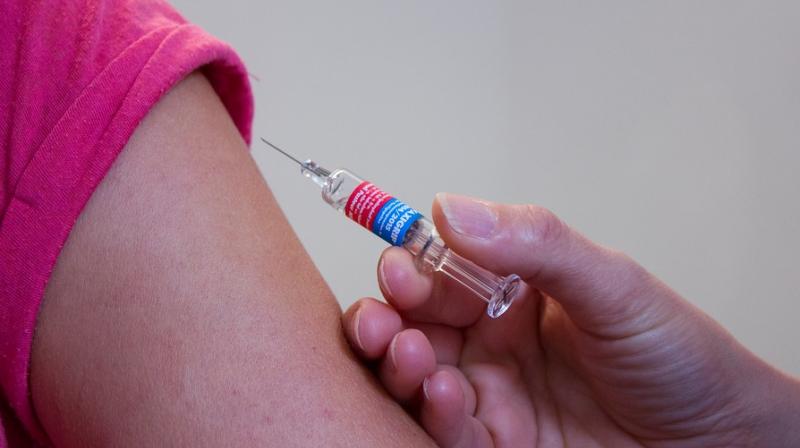New study finds HPV vaccination not linked with rise in teen risky sex

A new study adds to earlier evidence that getting vaccinated against the human papillomavirus (HPV) does not lead girls to be less careful about sex.
HPV is transmitted during sexual activity. When the Canadian province of British Columbia opted to vaccinate all teenage girls against HPV, some parents were concerned this would lead to more kids engaging in risky sexual behaviors.
But vaccinated girls may actually be less likely to start sex younger, less likely to have more sexual partners, and less likely to ignore safe-sex methods, the new study suggests.
“When we implemented the program over a decade ago, there were three main concerns: Would the vaccine be effective? Would it be safe? And might it influence sexual health choices?” said coauthor Dr. Gina Ogilvie, a professor at the University of British Columbia and senior public health scientist at the British Columbia Center for Disease Control. “But the girls continued to make very safe sexual health choices. In fact, they actually made better choices. So parents can be reassured that the HPV vaccine does not lead young girls to make poor sexual health choices.”
HPV infections usually go away on their own, but sometimes they persist and can cause certain cancers.
British Columbia introduced a publicly funded HPV vaccination program in schools for girls in 2008. To look at the effects of the program, Ogilvie and her colleagues pored through three sets of British Columbia Adolescent Health Surveys taken by students in grades seven through 12. Two surveys - the ones done in 2003 and 2008 - contained responses gathered prior to the HVP vaccination program. Those responses were compared to answers in a 2013 survey, five years after the program started.
As reported in CMAJ, 302,626 self-identified heterosexual girls were included in the surveys. The percentage of girls who reported ever having sex was 18.3 percent in 2013, down from 21.3 percent in 2003 and 20.6 percent in 2008. Moreover, the proportion of girls who said they had intercourse before age 14 declined between 2008 and 2013, from 13 percent to 10.2 percent, and the use of condoms increased from 63.3 percent in 2008 to 68.9 percent in 2013.
Though the study was done in Canada, its findings probably apply to the U.S., too, said Dr. Anna-Barbara Moscicki, a professor of pediatrics and chief of adolescent medicine at the University of California, Los Angeles, David Geffen School of Medicine.
In fact, Moscicki said, “There is another recent paper showing in the U.S. that vaccinated teens do not initiate sex more often.”
Ogilvie wasn’t willing to speculate on why girls seemed to be making healthier sexual choices after the implementation of the HPV vaccination program.
But it’s entirely possible that doctors sometimes throw in some education about sex when giving the vaccine, said Susan Rosenthal, director of the Division of Child and Adolescent Health at NewYork-Presbyterian/ Columbia University Irving Medical Center in New York City.
“There’s been pretty consistent evidence from the U.S. that when you provide information about contraception and condoms, teens reduce sexual risk-taking, delay sexual initiation and when they do have sex, they use protection,” Rosenthal said.
While it’s not known if a bit of sex ed came with the HPV shots in British Columbia, vaccination time can be a good opportunity to start a conversation, Rosenthal said. “A lot of times parents and others don’t know how to bring the subject up,” she added. “The HPV vaccination potentially provides you an opening and an opportunity to have a sex education conversation with families.”

